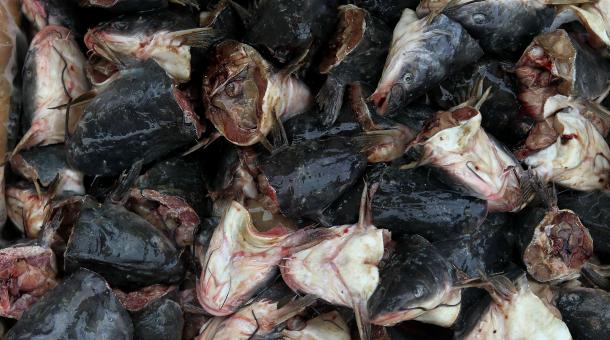Animal waste may become our next source of green energy.
Private corporations in the U.K. have begun investing big bucks to convert leftover food and animal byproducts into a new source of green energy that produces electricity and cuts costs.
Marketplace BBC World Service recently reported that big U.K. chains such as Walmart and Tesco are now actively running some of their stores on electricity converted from leftover foods. Fish heads, old lamb chops, stale sandwiches, and chicken fat represent just a few of the food waste products whose biogas can be burned to create electricity.
How do you get electricity from stale sandwiches?
Basically speaking, large vats of rotting organic waste ferment in the absence of oxygen in a kind of biogenic bath. Fermentation produces biogases, such as methane, which can be burned to run the machinery that generates green electricity. Anyone who’s kept a compost pile knows that decomposing organic material gives off a lot of heat energy.
U.S. Green Chamber of Commerce applauds this corporate pursuit of sustainable methods to cut costs. However, we also realize that Walmart and Tesco found the motivation to explore green energy alternatives specifically to forgo the U.K.’s hefty landfill tax.
Given their success in the U.K., should U.S. policies consider tax penalties over tax incentives to motivate the pursuit of green energy sources?
Stiff penalties go to private companies in the U.K. that send their waste to public landfills. Burning waste to create electricity allows these companies to avoid the tax and save money. When it comes to motivating corporate change, sometimes the stick makes a better impression than the carrot.
Private U.K. corporations have invested heavily to capitalize on this new source for green electricity as part of a growing worldwide trend to explore sustainable alternatives for energy. Bloomberg New Energy Finance reports that over the last five years, companies have invested $18.2 billion globally in developing waste-to-energy initiatives.
Effective waste-to-energy processes have gained priority because they ensure competitive edge in a global economy where “sustainable” and “survival” are rapidly becoming synonymous. We have to wonder if similar policies regarding waste management in the U.S. might jump start a wider national pursuit of renewable energy sources.
Related articles
- U.K.’s Trash Becomes Biofuel Treasure (spectrum.ieee.org)
- Americans would pay more for green energy (newscientist.com)
- Guyana: Turning Waste into Energy (repeatingislands.com)








